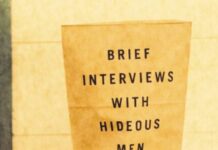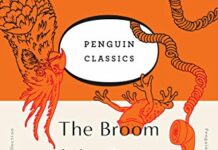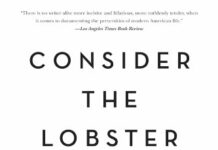
Ebook Info
- Published: 2004
- Number of pages: 336 pages
- Format: PDF
- File Size: 1.91 MB
- Authors: David Foster Wallace
Description
In the stories that make up Oblivion, David Foster Wallace joins the rawest, most naked humanity with the infinite involutions of self-consciousness — a combination that is dazzlingly, uniquely his. These are worlds undreamt of by any other mind. Only David Foster Wallace could convey a father’s desperate loneliness by way of his son’s daydreaming through a teacher’s homicidal breakdown (“The Soul Is Not a Smithy”). Or could explore the deepest and most hilarious aspects of creativity by delineating the office politics surrounding a magazine profile of an artist who produces miniature sculptures in an anatomically inconceivable way (“The Suffering Channel”). Or capture the ache of love’s breakdown in the painfully polite apologies of a man who believes his wife is hallucinating the sound of his snoring (“Oblivion”). Each of these stories is a complete world, as fully imagined as most entire novels, at once preposterously surreal and painfully immediate.”Stunning…Wallace is an astonishing storyteller whose fiction reminds us why we learned to read in the first place.” –San Francisco Chronicle
User’s Reviews
Reviews from Amazon users which were colected at the time this book was published on the website:
⭐It’s pretty tough for a writer to balkanize popular opinion the way David Foster Wallace has. It seems that for everyone who views Wallace as a literary genius, there’s someone else who thinks he’s a self-indulgent bore who appeals only to the pretentious. In truth, Wallace is neither; he’s just a writer who takes chances with his work and is apparently willing to accept the occasional failure along with his successes. More a journey than a destination, Wallace’s fiction relies heavily on such devices as unconventional narrative structures, punishingly dense and convoluted prose, dazzling verbal trickery, and clinical attention to detail. All that aside, though, Wallace isn’t just a showoff, as there’s an unmistakable human element to his fiction. Buried among the endless detail of these stories are some moments of profound insight and sympathy for the characters he’s created to go with Wallace’s innovative style and encyclopedic knowledge of just about everything.A prime example of all things Wallace is this collection’s opening story, “Mr. Squishy,” which is about 65 pages long but reads like at least 100. In one respect, this story is an insider’s view of the ad industry, complete with descriptions of various market research strategies and examinations of the minutest details of a focus group assembled to test out a new snack cake. On another level, though, the story examines the professional and personal frustrations of its protagonist, a focus-group coordinator who could be a symbol for any number of inconsequential white-collar workers the world over. And of course, there’s some trademark Wallace weirdness in the form of a costumed wall-climber with some bad intentions and a highly ambiguous ending that resolves exactly nothing. In other words, it’s kind of like a miniature version of “Infinite Jest.”The next story, “The Soul is Not a Smithy,” continues in this vein, starting with an elementary school student’s daydreams while a substitute teacher descends into madness in front of his class before connecting them to the disappointments of his father’s middle-class existence. The brilliant “Another Pioneer” is an examination of the nature of knowledge and belief revolving around the story of a long-ago young genius whose intellectual development eventually became too much for his fellow villagers to handle. The title story takes the arguments between a middle-aged guy and his wife over her accusations of his snoring and turns it into a penetrating look at the complexities that result from the confluence of marriage, parenthood, and aging.Wallace apparently decided to save the best for last, though, as the 90-page closer “The Suffering Channel” easily ranks among his most fascinating work. At turns poignant, hilarious, bizarre, and profound, the story takes a look at office politics, small-town dreams, and the modern literary world, all centered around a handyman who can create sculptures in a literally incredible manner. It’s everything Wallace can be when he’s on, and why readers should be willing to tolerate his occasional overreaching. Those who don’t like what Wallace does can say what they will, but his successes are more brilliant than most precisely because he aims so high that he doesn’t always reach his mark. You can’t have Wallace’s brilliance without his shortcomings. To be perfectly, honest, you have to just read the man’s work and come to your own conclusions.
⭐I have a mixed reaction to this my first encounter with D. F. Wallace’s fiction. I’ll begin with the praise. The command of prose shown in the stories is impressive, both in diction and use of viewpoint. The range of his vocabulary enables him to achieve precision both in description and in what might be called summary narration. He also demonstrates a mastery of viewpoint, such as in “Mr. Squishy” mingling first person perception with wide ranging omniscient intervals. The stories illustrate his gift for innovation prevalent in his other works as well as here. In “Good Old Neon” toward the conclusion the rambling first person commentary switches to an author’s retrospect on himself. In the land of D. F. Wallace’s fiction long sentences are the norm. I quote one as a nibble of the whole. This is taken from “Philosophy and the Mirror of Nature”. A son comments on the effect of botched plastic surgery on his mother’s appearance. The two are on a bus. The italicized two words are present in the original. We had learned through experimental method to not sit further back in the rows of more regular seats which face frontally because of the way certain fellow passengers would visibly react when they board and perform the seemingly reflexive action as they start moving down the aisle to a seat of briefly scanning the faces facing them from the narrow rows of seats extended backward through the bus and would suddenly see Mother’s distended and soundlessly screaming face appearing to gaze back at them in mindless terror. Longer sentences than this occur, some extending several screens of a Kindle Paper White. Now there is nothing wrong with long sentences per se; only, as in other literary quirks, percentage makes the difference between acceptable and overdone just as the amount of heat makes the difference between a roast well done and over done. And to be fair, Wallace shows in the stories he is as capable of short sentences as anyone, yet there are areas where long sentences follow each other like a crowd of millipedes.Now here I descend to personal bias. I prefer stories with more of an Aristotelian plot line. Yes, Wallace packs his stories with vivid detail. Yes, his delineation of character shows a sure hand. Yes, his transitions as in “Mr. Squishy” between a board meeting and the ascent of a building climber are deft. But some of the stories which approach novella length puzzle me as to what their point is. There is humor in “The Suffering Channel” a tale of excrement being taken as high art, but is Wallace satirizing literary criticism or implying that art is intrinsic every where? Does my age dull or even obliterate insight into the underlying premises? Or am I too moribund in, say, the fiction of Fielding, Defoe, Dickens, Conrad, Hemingway, or Updike to perceive the gem in the soup? No one has told me more often than myself I’m no genius. Yet, I dare to think I’m capable of discerning the trust of a tale, given enough hint in the telling. That said, I don’t condemn Oblivion the collection. Wallace, as the blurb at the end lists, achieved in his relatively short life, numerous awards. Ridden by depression he hung himself at the age of 46, an age at which an author has the advantages of an apprenticeship behind him/her, and the possibility of further and greater achievements ahead. Still, what I’ve read so far doesn’t entice me to venture further into the David Foster Wallace oeuvre.
⭐I started my David Foster Wallace obsession several years ago (shortly after I learned of his suicide) while reading his masterwork, Infinite Jest. That book ranks as one of my favorite pieces of literature of all time, right up there with Proust’s “In Search of Lost Time,” and just as challenging. I have since read several of his other works, including his early novel “The Broom of the System” and 2 other collections of short works. While reading “Oblivion” my first thought was “this is my least favorite DFW work.” It is very dark. One of the stories, “Good Old Neon” is devoted to suicide and a meditation on self-loathing, and a minor character named “David Wallace” is mentioned towards the end of the story. The title story (“Oblivion”) completely turned on its head in the last page. With the help of Wikipedia and other on-line sites that discussed the work I was able to get a better understanding and appreciation of the stories. So, in short, this is not my favorite DFW book, but definitely worth reading if you are willing to do a little work.I first purchased this book (from Amazon) in paperback, because even though I prefer reading on my Kindle so I can adjust the type size, I always bought DFW books in print editions due to fear of problems dealing with the footnotes and/or endnotes. However, after reading the first one or 2 stories I purchased it for Kindle due to my usual problems with eye strain. A few of the stories have footnotes–i.e. in the print version they are at the bottom of the page. Please note that in the Kindle edition they are all at the back of the book. It was not that difficult to navigate once I got the hang of it. However, I also noticed that some squiggles between sections of one of the longer stories were not in the Kindle edition–perhaps this is not an issue with the Kindle Fire.
⭐Infinite Jest is up there with Ulysses and The Recognitions in my opinion, an absolutely incredible novel, but these stories disappointed me. It felt like Wallace was trying too hard to be clever and not really sure where to go after taking on entertainment, addiction and postmodern irony in Infinite Jest. These stories really smacked of pretension and precocity in a way that I’ve often heard Wallace readers complain about and never really agreed with before. You can somewhat see that he’s moving towards the themes of boredom and boring jobs that he would address further in The Pale King, but neither this nor The Pale King really work for me. A synthesis of the two may have, but sadly we’ll never know.
⭐Quick delivery, good quality
⭐I was recommended this by a friend (a huge Wallace fan) and while I’ve only read a couple of the short stories (Good Old Neon and whichever comes after, with the unfortunate cosmetic surgery incident), I’ve come to love the sombre yet darkly humorous tone that is apparently characteristic of Wallace.Get it!
⭐Stunning
⭐La mayoría de las historias son 7/10 para arriba, pero a mí me gusta mucho el estilo de Wallace así que mi opinión es un poco sesgada.Si eres fan de DFW no te arrepentirás, si no eres tan fan yo creo que hay mejores libros que comprar primero.
⭐
Keywords
Free Download Oblivion: Stories in PDF format
Oblivion: Stories PDF Free Download
Download Oblivion: Stories 2004 PDF Free
Oblivion: Stories 2004 PDF Free Download
Download Oblivion: Stories PDF
Free Download Ebook Oblivion: Stories




